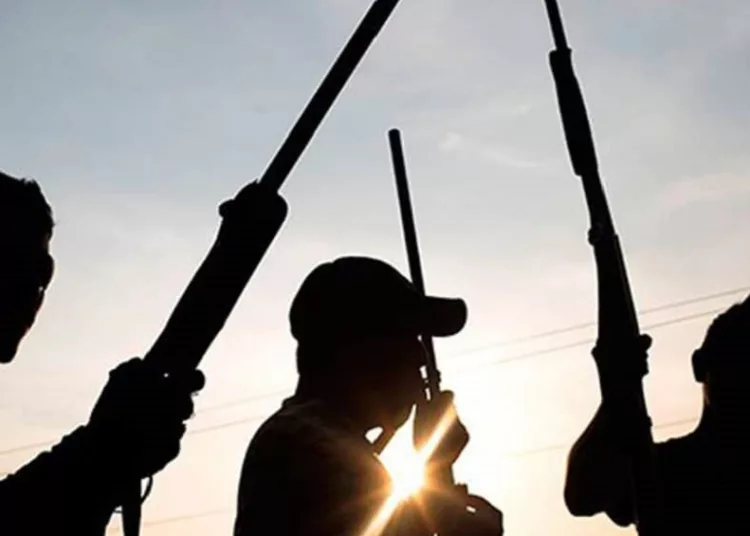The recent spate of kidnappings and killings by bandits in Nigeria, particularly in the Federal Capital Territory, is deeply alarming and requires an urgent, forceful response from President Bola Tinubu.
The brazen abduction of six siblings from their father’s house in Bwari Council, Abuja, on December 26, 2023, along with their father, Mansoor Al-Kadriya, and the murder of one of his daughters, Nabeeha, for failing to raise the ransom, leaving five alive, has stirred national outrage. This tragic incident is just one among many.
According to a report by the Abuja-based security firm Beacon Consulting, a total of 4,067 persons were abducted and 9,734 were killed by gunmen in Nigeria in 2023.
Even Abuja, the nation’s capital, once considered a haven, is now gripped by fear. The Commissioner of the Public Complaints Commission FCT, Dalhatu Ezekiel Musa, disclosed that 132 were kidnapped and 5 killed in 3 months in the FCT. This is unacceptable.
We also wonder why, with the NIN-phone number linkage, kidnappers are still able to call victims’ families without being traced.
No doubt, kidnapping is still thriving because of the collusion of bandits with some criminal elements in the security agencies.
The Inspector General of Police, Kayode Egbetokun’s launch of a Special Intervention Squad to tackle kidnappers is a welcome move. The Minister of the FCT, Wyesom Wike’s assurances of making the territory too hot for bandits are also reassuring.
However, most Nigerians are not impressed by the show or, rather, the appearance of force by the police, as we have seen all this before.
Pointedly, what Nigerians want is action. Nigerians want to travel on the highways without fear of being killed or abducted. Nigerians want to sleep with both eyes closed without bandits breaking down their doors.
In the considered opinion of this newspaper, beyond statements and temporary interventions, what is required are long-term, holistic measures to curb the menace decisively.
The systemic gaps that enable these crimes must be plugged.
Beyond temporary crackdowns, long-term systemic changes are essential. Intelligence sharing between agencies needs drastic improvement to stay ahead of criminals.
Border security must be tightened to cut off their supplies of arms and manpower.
Building the capacity of the understaffed, undertrained police is vital. Advanced technologies like drones and CCTV could boost monitoring.
Supporting community policing would also help security forces leverage local knowledge.
Tackling socio-economic factors that drive youths to criminality is crucial too. Providing education, skills training, and job opportunities could steer them away from gangs.
Domestically, stricter gun control measures should be enacted and enforced. Amnesty programs that encourage the voluntary surrender of illegal weapons have proven helpful.
While governments at federal and state levels take measures to improve security, citizens too must cooperate. Vigilance and reporting any suspicious activities in our neighborhoods can help.
Needless to say, refusing to pay ransom only makes kidnapping less lucrative. But it’s easier said than done. People pay ransom because of the failure of the system to protect them.
Curbing insecurity is a shared responsibility. The rising tide of banditry and terror calls for stringent actions beyond mere words.
The bandits cannot be more powerful than the Nigerian state. We need to see more kidnappers being arrested and put on trial. These actions will go a long way to serve as deterrents.
President Tinubu should know that his legacy is at stake. No matter how he performs in the economy and other areas, if he fails in addressing insecurity, history will not be kind to him. Every other success pales in comparison to insecurity.
The president should go beyond summoning the service chiefs anytime there is an abduction or killing, as nothing is done until the next abduction.
Government and citizens alike have a role. But the urgency is clear: Nigeria cannot withstand more innocent lives lost. President Tinubu must back his pledges of forest guards and technology with tangible action.
We also suggest that there should be a massive military operation to flush out bandits and terrorists from the forest.
Also, going after the sponsors of banditry and terrorism will go a long way in curbing the issue.
Decisive, multifaceted strategies to restore safety and stability are needed now. Leaders at both the federal and state level must make security a top priority. The international community should increase intelligence cooperation and arms interdiction.
With banditry and bloodshed escalating, the time for action is long overdue. Nigeria must summon the will to protect its people.





